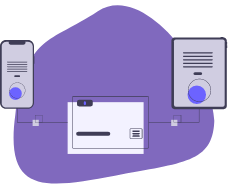Est. read time: 3 min
Superannuation is your retirement fund and is often paid via your employer. If you started working later in life or have not earned superannuation previously, you can choose to sacrifice more of your income to go towards it. It’s unlikely that you will be able to access this before your retirement age. However, you may be granted access due to financial hardship or on compassionate grounds.
Understanding superannuation
Superannuation, or super, is money put aside by your employer and/or you over your working life that will help to fund your retirement. The money held in a super account is invested by the super fund that manages the account. Your employer automatically enrols you in their preferred super fund unless you choose your fund and decide which investment options your money is stored in.
Your employer will contribute to your super fund, and you can make additional contributions with your money. The government may also make contributions if you are a low-income earner.
Find more information about government contributions to your superannuation fund at ATO – Super co-contribution.
Find more resources about superannuation at Australian Securities and Investments Commission – Superannuation.
Generally, you will not be able to access the money in your super account until you reach your ‘preservation age’ – the minimum age you must reach before you can access your superannuation funds. Your preservation age depends on the year you were born and is between 55 and 60.
Find more information about your preservation age based on the year you were born at MoneySmart – Getting your super.
- check for any annual superannuation statement issued to you – this will give you a good indication of where your superannuation is held and how much you have
- if you don’t know or have lost track of your superannuation, you can check by registering for the Australian Taxation Office’s online services via myGov – this will allow you to see details of all your super accounts, including any you may have lost or forgotten about
- once you have found all your super accounts, you can consolidate them into one account using your myGov account
In special circumstances, you may be entitled to access your super early, for example through:
- Severe financial hardship — if you can’t meet your living expenses and have been receiving Commonwealth benefits for 26 weeks.
- Incapacity — if you’re unable to work or need to work fewer hours because of a medical condition.
- Terminal medical condition — if you have a terminal illness or injury.
- Compassionate grounds — to pay for unpaid expenses. These could include medical treatment, modifying your home or vehicle because of a severe disability, funeral expenses, or a loan repayment to prevent you from losing your home.
The Australian Taxation Office recognises that severe financial hardship often arises from Family and Domestic Violence circumstances and offers a range of support for people in this situation, including early access to superannuation.
To find more information about accessing your super early, see ATO – When can you access your super early.
Early access to your superannuation means that a reduced amount of superannuation will be available when you reach retirement age.
You may be able to access an Australian government age pension once you’re no longer able to work, however, you must reach the Age Pension eligibility age first. Your eligibility age is based on your date of birth but has increased from 65 to 67 since 1 July 2023. Find your pension eligibility age based on the year you were born at Department of Social Services – Age pension benefit.
In Australia, the preservation age (the age you can access your super) is much lower than the Age Pension eligibility age (the age you can access the age pension). It is important to pay and understand your superannuation so you can financially support yourself if you need to stop working before you’re eligible to collect the age pension.
Once you’ve reached your super preservation age and have permanently retired, you can access the money in your super account to live from. If you haven’t permanently retired but have reached your preservation age, you can still access part of your super in a transition-to-retirement pension.
Find more information, including the limited circumstances in which you may be able to access your super early at MoneySmart – Transition to retirement and MoneySmart – Getting your super.
If you are entering the workforce for the first time and have not accrued any superannuation in the past, your employer will put the money into a ‘default’ super fund, known as a MySuper account. You can also choose a specific superannuation fund to have your super paid into, if you wish.
In most cases, you will be able to choose the fund that you’d like to have your super contribution paid into. For more information see the MoneySmart’s information page on choosing a superannuation fund.
Some industrial awards specify a fund or a choice of a few funds that superannuation must be paid into. In these cases, you may have limited or no choice of fund.
Once you have chosen your super fund, notify your employer by filling in a standard choice form from the Australian Taxation Office or from your employer.
Super after separation
Getting your superannuation sorted after your relationship ends is an important step in planning for your future. Once you separate or get divorced, superannuation is treated as a type of property and can be divided by agreement or by court order.
Splitting from your partner does not mean you can convert your superannuation into cash – it is still subject to superannuation laws.
Separating couples may either:
- Have a lawyer certify a written agreement that splits you and your former partners superannuation – you do not need to go to court but you must both retain a copy of the agreement
- seek consent orders to split superannuation
- seek a court order to split superannuation (if you cannot reach an agreement with your former partner)
You should get legal advice about these options. These websites have helpful resources on dividing superannuation:
What next?
Get support
Remember stalking, harassment and abuse are not okay and not your fault.
If you are in immediate danger please call 000, or to speak to a trained counsellor and call 1800 RESPECT (1800 737 732)
Consider your device safety settings whilst browsing Yourtoolkit.com. Find device safety tips and instructions on how to clean browser history in Prepare 1A.
Alternatively, if you need to exit this website, immediately use the quick exit button. For added precaution, clear your browser history for the last hour and close down all tabs.









